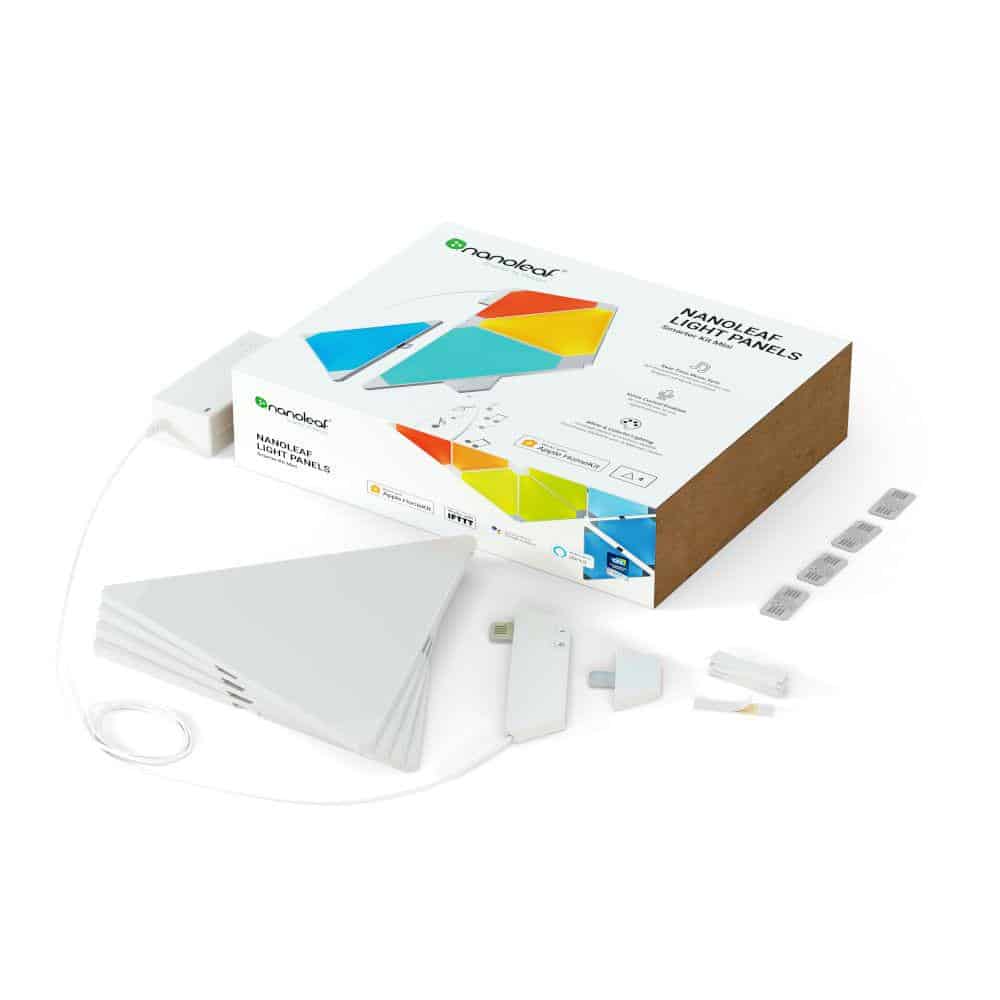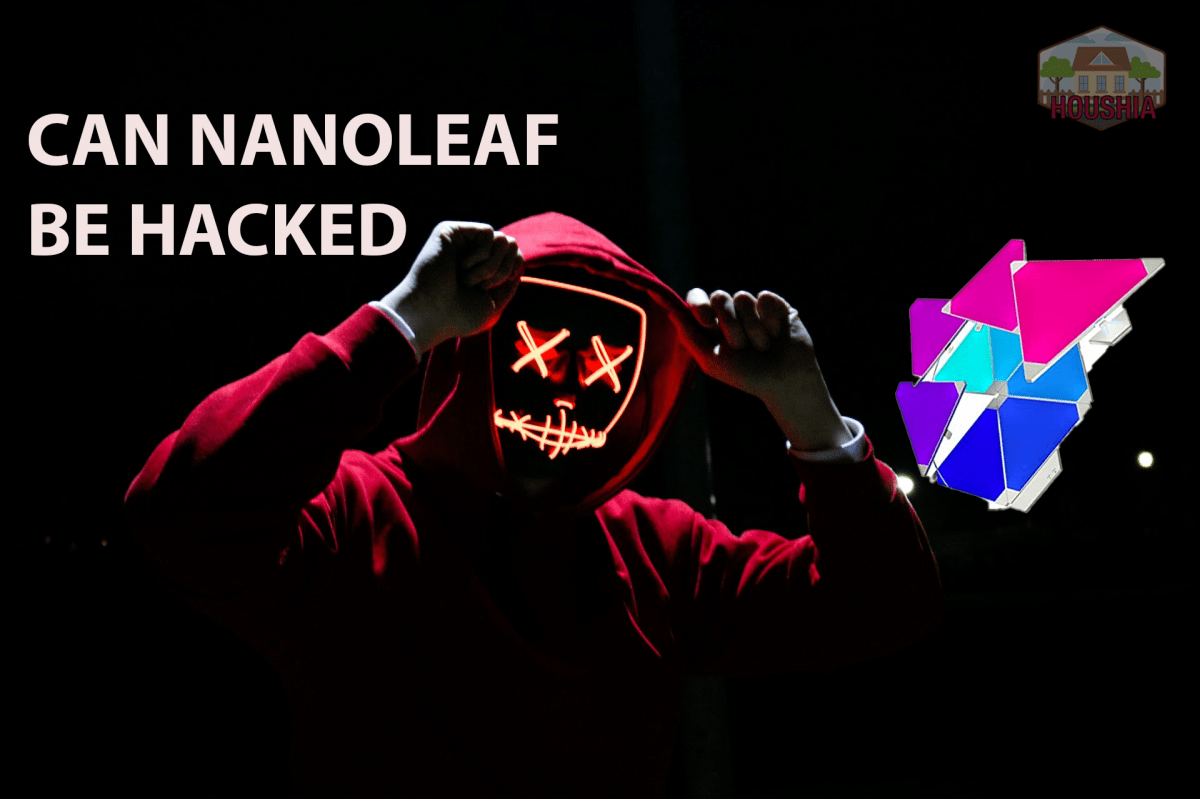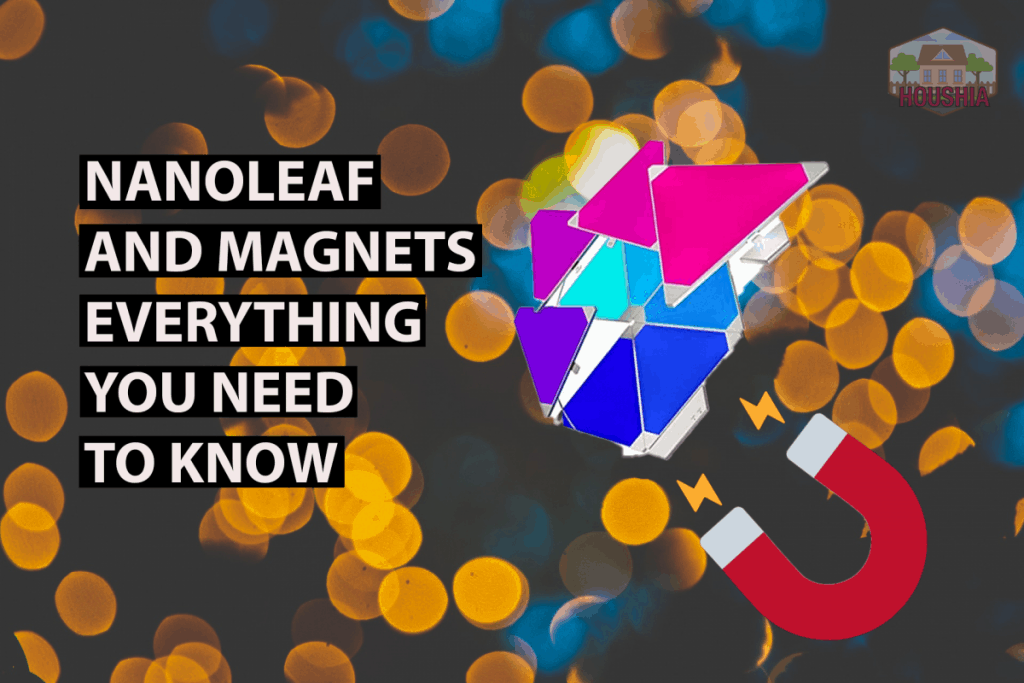As most of us now are slowly realizing, there is a big price for the efficiency technology gives us — our privacy. Today, it is not even surprising to hear that smart gadgets here and there are being hacked and that other people could listen in on our conversations if they wanted. Now that something as simple as lights even have built in-microphones, we find ourselves asking if it’s safe to have them in our homes. This is the case for the leader in smart panel lighting, Nanoleaf.
Can Nanoleaf be hacked? By themselves, no, Nanoleaf panels and their built-in microphones pose no threat because they do not store memory. However, if these same panels are connected to a smart home platform like Amazon Alexa, they are more vulnerable to hacking because these platforms are likely targets for sensitive information.
For a more general take on things, most users’ question probably is whether or not Nanoleaf panels can be exploited by cybercriminals. Unfortunately, like most electronic devices, of course, there is a degree of risk that comes with using smart gadgets like Nanoleaf. However, as we will discuss in this article, there are also certain measures you can take to ensure that Nanoleaf, even with its low security risk by itself, will not contribute to the vulnerability of your network.
All About Nanoleaf Light Panels
A Guide to Nanoleaf Light Panels
Nanoleaf panels are modular light panels that can be designed to match your personal style. You can choose among more than 16 million colors to create a specific ambiance or to even just add more functional lights to your room. Nanoleaf has a simple installation process through its drill-free mount process that includes tape in the kit.
On top of this, users love how they have flexible control over the lighting panels. They can operate it with the included controller, their voice, or through the Nanoleaf app on their phones. What’s even more cost-efficient for users is that Nanoleaf does not require purchasing an additional hub for you to gain access to its optional advanced features. All you have to do is connect to the internet and voila, you can tweak the Nanoleaf light panels all you want!
We’ve got a few articles covering if certain technologies can be hacked. you might be interested in reading our recent post on if garage openers can be hacked. Knowing the answer could save you $1000’s Can My Smart Garage Door Be Hacked? This WILL shock you!

Nanoleaf Light Panels’ Rhythm Microphone
On top of the features mentioned above, Nanoleaf panels actually have this Rhythm Module for Music Sync. Basically, through this feature, you can have your lights listen in to the music you’re playing in the background and have them dance to it. The lights are able to do this through their built-in microphone that will take in sounds in the room as an input and react to it to put on an exciting light show. This microphone has then raised some concerns from users regarding security.
On Reddit, it was actually shared that Nanoleaf light panels’ rhythm microphone only picks up on volume levels. So, it doesn’t store any memory since it reacts to the sounds (or music) it hears in real time. There is also no data stored in any cloud except for the settings you have for the lights themselves. When it comes to actual conversations or sounds, there are no records or reports of this kind of information stored by Nanoleaf light panels.
Furthermore, you basically cannot access the light panels’ microphone through the app. All you can do is turn on the Rhythm Module to watch your lights dance to music. Thus, a user says that there is basically no risk nor reward when it comes to the Rhythm Microphone itself.
However, the story changes when you connect Nanoleaf to smart home platforms like Google Home or Amazon Alexa. This is because these types of technologies store data and information in order to make your life “easier,” in a sense. They are designed to track related information about the apps you use and your daily activities as “smart devices.” They are supposed to learn how you use technology so that the entire process becomes smoother for you as a user.
In fact, there are already reports of Amazon Alexa being hacked through a laser from 100 meters away. But, we’ll dive more into this later on in the article when we talk about what you can do to protect your smart home from hackers.

Smart Bulbs Pose a Security Risk
Although there has been no official report nor any post from users about Nanoleaf being hacked, it doesn’t mean that you should not be vigilant. There has already been a study that delved into how cybercriminals can use smart lights like Philips Hue and Nanoleaf (among many others) to exploit other people’s personal information. To understand how they make you vulnerable, a computer science professor suggests thinking of the smart lights as a computer with very simple chips that can be a target for stealing information.
Some hackers are easily able to get into the smart bulbs because these same bulbs are infrared-enabled. This means that they can be controlled by cybercriminals who use the infrared wavelength to gain access to the user’s home network. Basically, the smart bulbs act as the door through which they can enter your smart home network and directly access information like your messages and photos in devices connected to the same network. What’s also critical is that these types of hacking may be hard to notice especially that the hack “came from within the home’s network.”
This is why the proponents of the research actually suggest getting smart lights that, unlike Nanoleaf, require a hub to communicate with each other. Since the lights are connected through the hub (instead of directly through your Wi-Fi network), this makes it harder for hackers to gain access to your smart lights. Consequently, your home network is less vulnerable.
If you’re thinking of making your nanoleaf rig configurable, we’ve put together a great piece talking about how you can use magnetic strips to change your nanoleaf shapes without ripping them off the wall! Nanoleaf And Magnets – Everything You Need To Know
How to Protect Your Smart Home from Hackers
With all of your devices connected through a single network, hackers today can easily get much more information . As mentioned above, they have gotten even more creative with using just a laser beam to hack your smart home platforms. Basically, what happens is that the laser acts as a signal that resembles a voice command. Thus, from a 100 meters away, hackers can make commands and make voice-operated devices carry out actions like turning lights on and off.
The suggestion solution to this, as for now, is to make sure that the speakers like Amazon Echo or other similar technologies are out of the line of sight. This means ensuring that there are objects that could block the laser from coming into direct contact with the device. Otherwise, hackers can control it from long distances. Aside from this, there are other steps you can follow listed below.
Protect Your Wi-Fi Network
The security of your Wi-Fi network is your first line of defense. When you purchase a router, it is suggested that you change the name of the network and the default password. You should make sure that your network name does not give away your location nor your personal details. You can also create a separate network for guests so they don’t have direct access to the network that you use to input sensitive information online.
Create Strong Passwords
Although this tip is a no-brainer, it is one that can give you another layer of protection from hackers. You should avoid passwords that are common and easy to guess like “abcdef” or “123456” or even “password.” Instead, you can be more creative and unpredictable by using special characters, a combination of uppercase and lowercase letters, and also numbers.
Keep Everything Updated
Updates contain important fixes to several issues especially loopholes in security. Make sure to get everything updated including your devices that are connected to your smart home platform. This can help you ensure that the devices as well as your network are safe and have the latest security defenses. If you don’t have automatic updates, check the official websites for them.
Research and Know What to Tweak
Lastly, check the settings for your devices and disable features you may not need. You can research about the privacy and security settings that you need to tweak because, if you don’t, there may be some default settings that are there to benefit the manufacturer. For example, this can come in the form of reports that are sent to them daily that you may not even know about. You can also disable some services like remote access (if you don’t need it) to lessen the vulnerability of your network.
Conclusion
To end, technology has really become a two-edged sword. Hackers, once they have access to your smart home network, can use your personal information, and engage in cyber crimes like identity theft and privacy violations. Thus, even with simple smart devices like Nanoleaf, you always have to be vigilant and purposeful in your use of technology.
With the efficiency that comes with these smart devices, you should be aware of what you can do to also protect yourself from possible security issues. Definitely, there are ways to enjoy dancing lights and still keep sensitive information safe. But, it is up to you to take up these measures so you can make the most out of your Nanoleaf light panels without a hint of worry.
P.S.
That’s it for this article. I hope you enjoyed reading it and if you think it might be useful for someone else then please share it on social media, email or your own website! It really encourages us to write more content and grow the site!
Steve
If you’re interested in reading more about smart light, smart garages and smart homes checkout some of the other houshia categories including:


